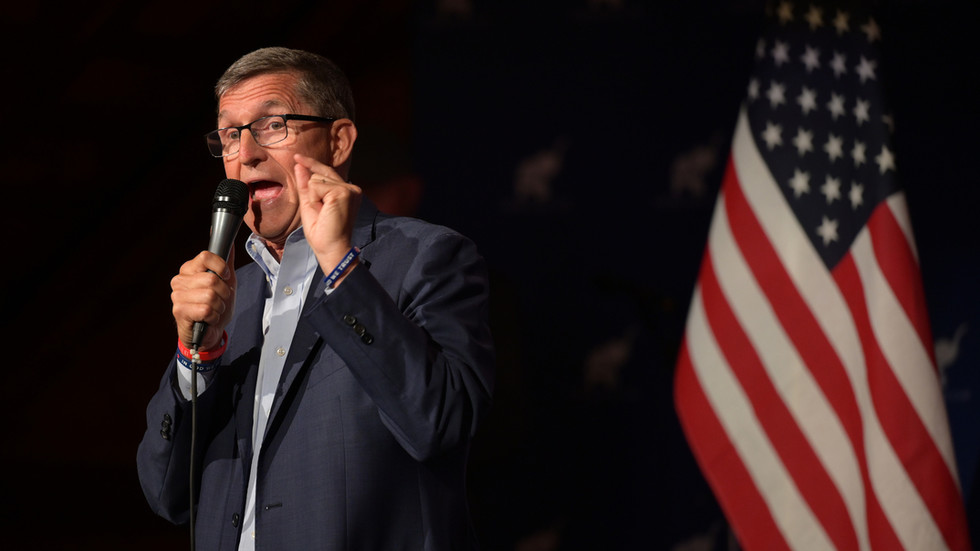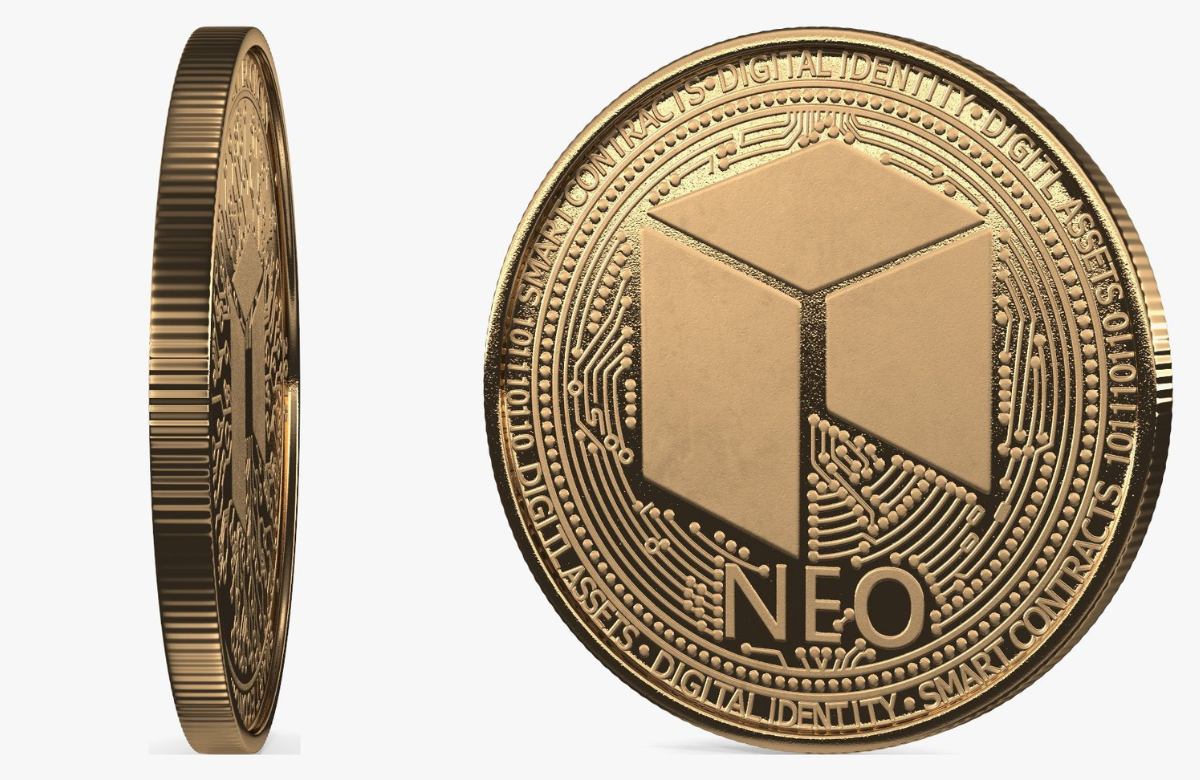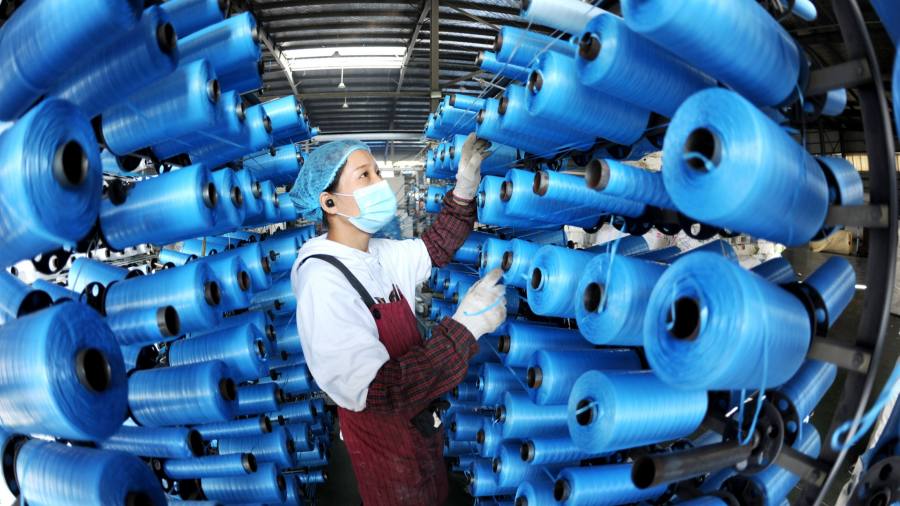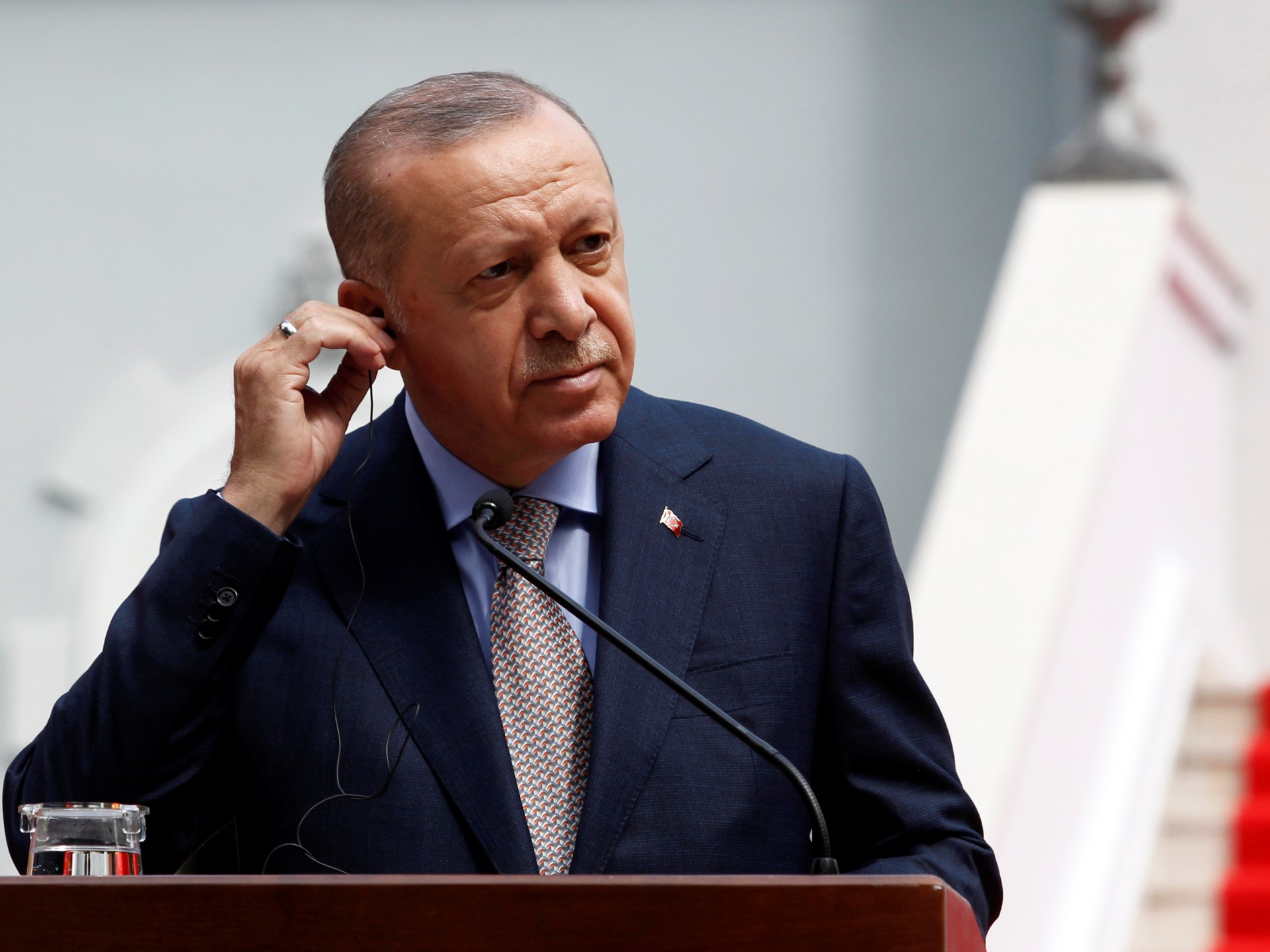The race to win the Republican nomination for the White House is set to kick off in earnest, as the party holds its first presidential debate this Wednesday.
And while the debate will feature some of the biggest names in conservative politics, one figure will be conspicuously absent: former United States President Donald Trump.
Far and away the frontrunner in the Republican race, Trump announced on his platform Truth Social over the weekend that he would not participate in the debate, citing his already high poll numbers.
But that opens the debate stage to underdogs like Florida Governor Ron DeSantis, businessman Vivek Ramaswamy and former Vice President Mike Pence, who hope to use the spotlight to gain traction — and possibly knock Trump out of the top spot.
These televised debates can be launchpads for successful campaigns, and the Republican Party is hoping that a candidate will emerge who can unseat incumbent President Joe Biden, a Democrat. The inaugural debate is being held in Milwaukee, Wisconsin, a pivotal battleground state that Biden narrowly won in the 2020 presidential election.
Who are the candidates, what issues will be discussed, and how can you watch the debate? We answer these questions and more in this quick and easy explainer.
Who is participating?
Eight candidates have met the requirements to participate set by the Republican National Committee and agreed to take part in the debate.
They include DeSantis, Pence and Ramaswamy, as well as South Carolina Senator Tim Scott, former UN ambassador Nikki Haley, former New Jersey Governor Chris Christie, North Dakota Governor Doug Burgum and former Arkansas Governor Asa Hutchinson.
To make the cut, the candidates had to have at least 40,000 unique donors, spread across at least 20 states. They also had to earn at least 1 percent support in three national polls or two national polls, plus a key early-state poll.
Trump also met those benchmarks, but he declined to participate.
All participants had until 48 hours before the debate to submit documentation that they met the qualifications and planned to attend.
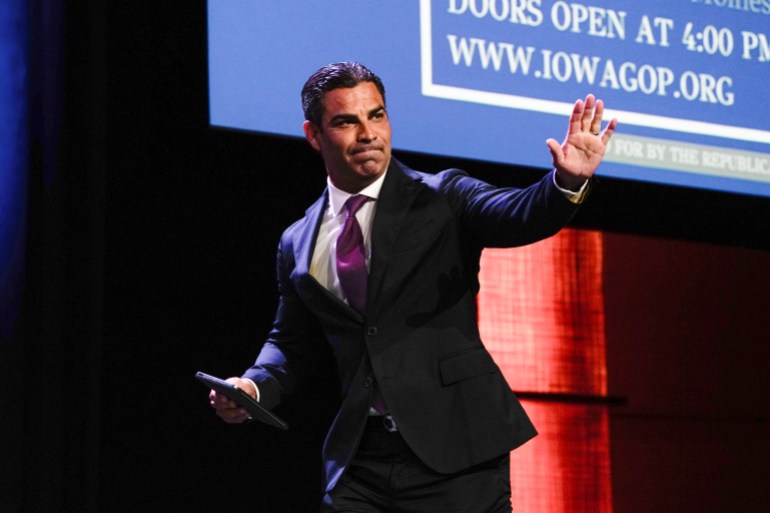
Who didn’t make the cut?
The current Republican field is crowded, and some candidates did not meet the benchmarks to participate in the debate.
Former Texas Congressman William Hurd, talk radio host Larry Elder and businessman Perry Johnson were unable to qualify. Miami Mayor Francis Suarez also failed to make the cut, despite claiming otherwise last week.
Suarez has previously told reporters at the 2023 Iowa State Fair that candidates who did not meet the “minimum thresholds” for the debate should drop out. “I don’t think candidates should just sort of linger around if they don’t have a credible path,” he said.
The requirements will rise further for the second debate, a process meant to filter out less competitive candidates.
What is the loyalty pledge?
In addition to the debate’s eligibility requirements, candidates hoping to participate were required to sign a loyalty pledge, promising to support the Republican Party’s eventual nominee.
The pledge is designed to prevent Republican candidates from considering a third-party run, should they fail to land the nomination. Such a campaign could split the conservative vote.
But the loyalty pledge has been a sticking point for some candidates. Trump flatly rejected the pledge in an August interview with the conservative outlet Newsmax.
“I wouldn’t sign the pledge,” Trump told host Eric Bolling. “Why would I sign a pledge? There are people on there that I wouldn’t have. I wouldn’t have certain people as somebody that I’d endorse.”
His rival Christie — an outspoken critic of the former president — has likewise called the pledge a “bad idea” and “nonsensical theatre”.
“I’m going to take the pledge just as seriously as Donald Trump took it in 2016,” Christie told CNN, referencing Trump’s decision to sign and then back out of the pledge during that year’s race.
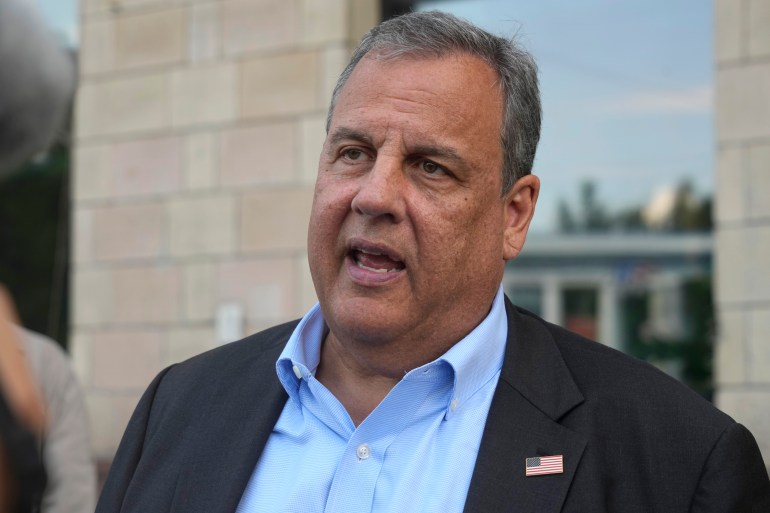
Will Donald Trump attend?
Given Trump’s staunch opposition to the loyalty pledge, the former president’s attendance at the Republican presidential debate seemed uncertain from the outset.
But on Sunday, Trump put the rumours to rest by confirming he would skip the debate entirely.
“The public knows who I am & what a successful Presidency I had,” Trump posted on Truth Social. “I WILL THEREFORE NOT BE DOING THE DEBATES!”
Citing his strong poll numbers, Trump indicated he did not need the debate stage to rally support. A July 31 survey from the New York Times and Siena College showed the former president with a commanding lead among Republicans, with 54 percent support. That put him far ahead of his closest rival, DeSantis, at 17 percent.
“As everyone is aware, my Poll numbers, over a ‘wonderful’ field of Republican candidates, are extraordinary,” he wrote on Truth Social on Thursday. “Why would I Debate?”
The former president also expressed discomfort with Fox News hosting the debate, accusing the network of portraying him in an unflattering light.
“Why doesn’t Fox and Friends show all of the Polls where I am beating Biden, by a lot,” he posted last Thursday. “They purposely show the absolutely worst pictures of me.”
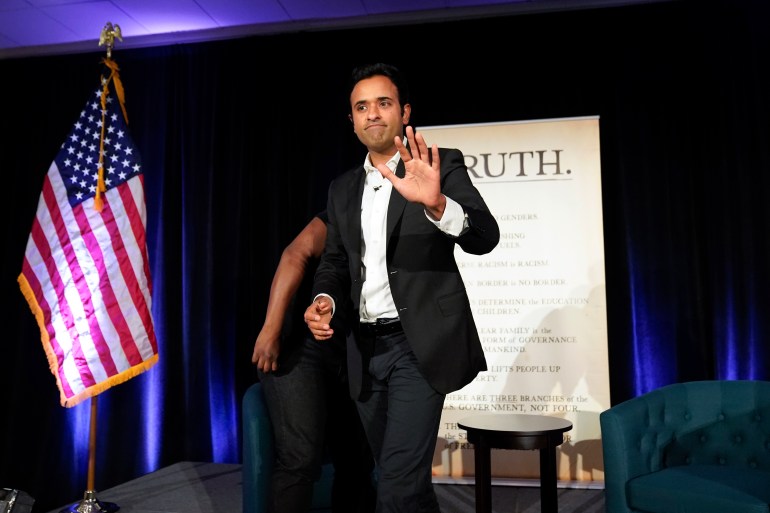
What issues will be discussed?
While nothing is set in stone, topics could range from crime to immigration to LGBTQ rights.
Abortion rights are likely to come up, as the Republican Party has led efforts to restrict and even ban the procedure. Former Vice President Pence recently hinted he may challenge other candidates over their hesitation to embrace nationwide abortion restrictions, though critics have warned the issue has been a mobilising force for Republican opponents.
Education is also expected to be discussed, as conservative groups like Moms for Liberty push for more control over classroom material, prompting debates about censorship.
Trump himself may crop up as a topic. The former president faces four criminal indictments, and many Republican voters consider him a victim of political persecution. Some candidates have already committed to pardoning him if elected, a question that may be weighed on the debate stage.
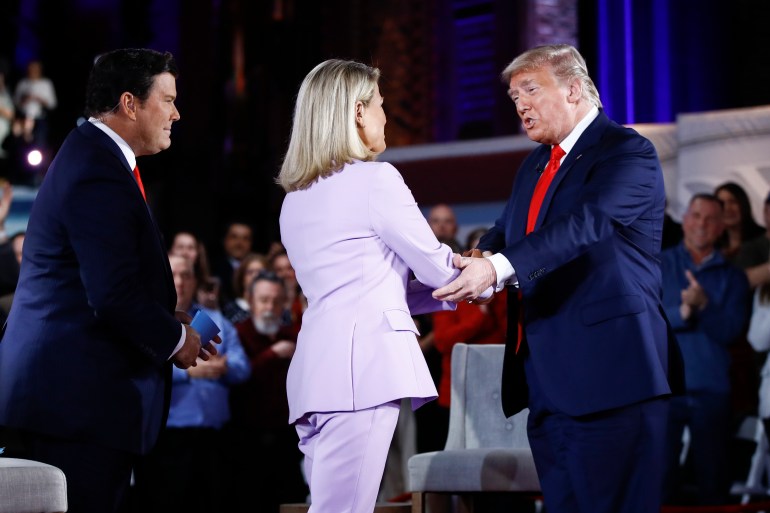
Who is the host?
The conservative media network Fox News is hosting the debate, which will be moderated by anchors Bret Baier and Martha MacCallum.
A former White House correspondent for Fox News, Baier now hosts its evening news show Special Report. MacCallum, meanwhile, hosts the news talk show The Story. Prior to joining Fox News, she worked for NBC and its affiliates.
But the decision to use Fox News as a debate host has been a sticking point for Trump, who considers the channel a “hostile network”.
US media has indicated that Trump recorded an interview to be aired at the same time as the debate, in an apparent effort to draw away viewership. That interview was reportedly given to host Tucker Carlson, who was fired from Fox News in April.
When does it start?
The two-hour debate begins at 9pm on US East Coast on Wednesday (01:00 GMT Thursday) and is anticipated to end at 11pm that night (03:00 GMT Thursday).
How can I watch?
The debate will be broadcast live in the US on the Fox News Channel and Fox Business Network. It will also stream on the subscription platform Fox Nation and the website FoxNews.com, with coverage across the network’s other platforms, including Fox News Audio.
Rumble, an online video platform popular with conservatives, will also carry a livestream, according to the Republican National Committee.
What comes next?
Fox News is scheduled to broadcast a second Republican presidential debate on September 27.
That event will take place at the Ronald Reagan Presidential Foundation and Institute in Simi Valley, California — a nod to one of the formative figures in modern American conservatism. Reagan served as president from 1981 to 1989 and is credited with launching a right-ward shift in US politics.


